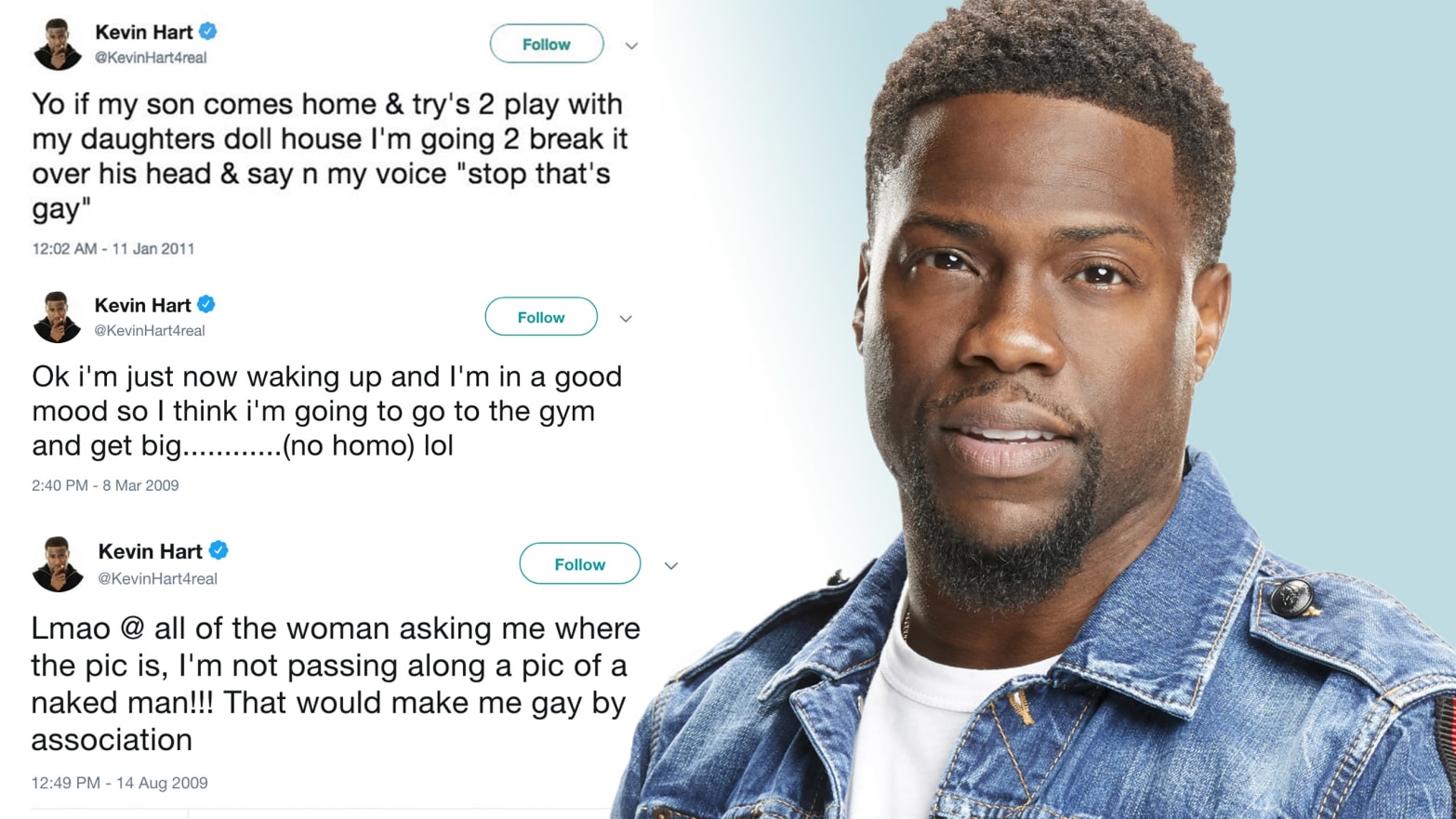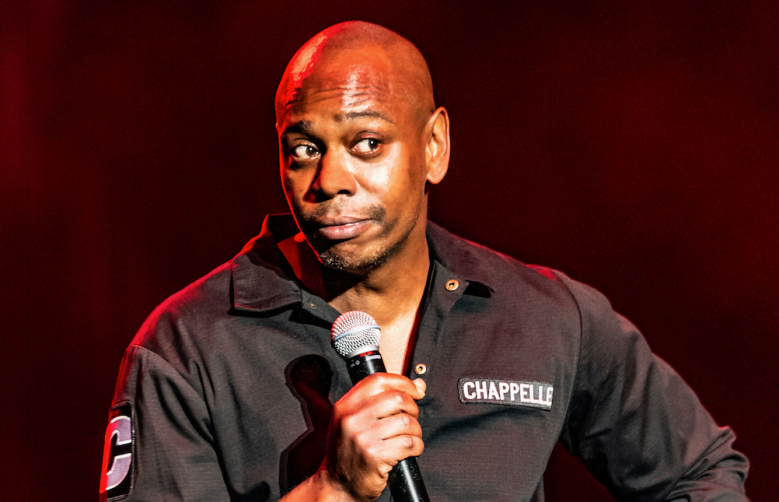Netflix is a myriad contradiction at times. It has created some of the most well-known woman-centric shows (Orange is the New Black, The Crown) but also keeps giving a platform to people like Aziz Ansari, who has been accused of sexual harassment. The contradiction clears up when one understands that like any other streaming company, Netflix also follows the money no matter how tone-deaf it might seem. In its latest line of being tone-deaf, Netflix decided to stream another stand up show by Dave Chappelle.
Dave Chappelle has had a history of making problematic and offensive statements under the guise of “jokes” since he first started, quite like many other male stand-up comedians like him. In a much more aware and sensitized atmosphere like today, when he is finally called out on his statements, Dave Chapelle does not take the high road, in fact, he refuses to do so like many other entitled men we know. Far from apologizing, his latest Netflix special can be basically summed up as him pettily proclaiming, “I will continue to do what I have done all these years”.

Dave Chappelle has had a history of making problematic and offensive statements under the guise of “jokes” since he first started, quite like many other male stand-up comedians like him.
Stand-up Comedy took a new dimension for me after watching Hannah Gadsby’s ‘Nanette’. ‘Nanette’ was a learning experience as Gadsby showed how jokes are often made at the expense of communities, mostly the minorities. Tension relief at the expense of people forced to exist in the margins isn’t funny; it’s cruelty. I learned that from Hannah Gadsby.

For the longest time, Dave Chappelle was known for his forthrightness, for his frankness and more importantly, owning his identity as an African-American. His satirical work was a fresh breath of air but he does not evolve with time, rather he complains at its evolution. Comedians like Chappelle continue to make jokes at the expense of people, of communities. Problematizing this however, would earn me the tag of a “liberal snowflake” (far from context) and of a spoilsport. While I am not bothered by the tags, what does bother me is that how we continue to judge art forms in an utter vacuum and remain blind to the context and the period of when this art is being produced.
In a particularly bad “joke” (one which Dave’s own Asian wife hates), Chappelle calls the LGBTQIA+ community as the “Alphabet people”. Going a step up (or down?) from his previous “T-people” joke (“A transwoman is a man in a dress”), Dave Chappelle talks about how he does not believe in Trans-dysphoria but feels it is a “hilarious predicament to be in”. He then compares it to feeling like a Chinese person from the inside but having the body of an African American man, followed by a distasteful impersonation.
He tries to get ahead of the “cancel culture” by cancelling it for himself at first – the question of accountability for past misdeeds (whether they are homophobic tweets as in the case of Kevin Hart) does not occur to him. He proclaims himself to be a “victim blamer”, saying he does not believe in the men who accused Michael Jackson of sexually abusing them while they were underage. He says that when he heard Chris Brown beat up Rihanna, his first question was, “Well, what did she do?” He uses the R. Kelly incident followed by some more paedophilic comments that are nowhere near funny.


Till now in 2019, 18 Transpeople have been gruesomely killed in USA. In times like these, Chappelle making Transphobic jokes is not the main problem. The main problem is that he addresses these jokes to an audience of hundreds and thousands. Hundreds and thousands of his followers and fans, who pay money to see him live. This audience laughs at his jokes. They laugh at every punchline he delivers regardless of how sexist and misogynist it is. At one point, in solution to the #MeToo movement, Chappelle says outright that women can just “Shut the f— up” and I see a woman from the audience bending from laughter.
Also read: Utsav Chakraborty And The Performative ‘Woke Men’ Of The Comedy Circuit
People from minority communities know and are aware that they are cornered in a society like ours. When famous and venerated celebrities make jokes against them causing a roar of laughter, that’s when these minorities actively experience the feeling of being cornered. This laughter is not a harmless reaction to a clever statement, it is validation and recognition to whatever the comedian is saying. It is a symbiotic relationship of passing validation as everybody in the room agrees on one thing at that point – the comedian knows he can make more such jokes later on; the audience feels they are not alone in their thoughts.
People from minority communities know and are aware that they are cornered in a society like ours. When famous and venerated celebrities make jokes against them causing a roar of laughter, that’s when these minorities actively experience the feeling of being cornered.
Putting that in the context of larger society, I feel scared. So does everybody, who can feel themselves being pushed into the corner each time jokes are being made at their expense. Jokes start becoming offensive the moment they become degrading and instill fear and pain in the person who is being made fun of, directly and indirectly.
At a time in USA when children are in cages, concentration camps are being built at the border, Indigenous land and lives are under assault, Dave could have used his gifts to insightfully impugn what’s really offensive. Instead of going after the powerful, he attacks the most vulnerable It’s not just lazy, it’s also not entertaining anymore.
Chappelle, in his own frank arrogance, says in the middle of his stand-up, “If you’re at home watching this on Netflix, remember b—-: you clicked on my face.”
Also read: Zakir Khan’s Haq Se Single And The Underlying Glamourisation Of Bro Culture In Comedy
Never again. While I shudder to believe what the definition of “fun“ is to the people who laugh at his jokes- never again.
Featured Image Source: IndieWire
About the author(s)
Sukanya Bhattacharya is a postgraduate student at Tata Institute of Social Sciences, Mumbai. She is interested in looking at feminism and gender through the lenses of popular culture, social media and urban spaces. She has written for 'Asia in Global Affairs' and has also been a volunteer at 'Calcutta Rescue'. She is also an avid debater and a quizzer.





I’m glad you wrote this. I was waiting for it, I suppose. I watched a YouTube clip of Dave Chapelle’s gig and felt innately uncomfortable. I couldn’t put it in words and hence only managed to give a thumbs down. But I’m glad you brought this up.
Although this article was well put together, I could not take it seriously. Since the word feminism is in the name of your Media outlet, I knew form the beginning it would be bias toward your own ideas of what’s funny…please note that we all have our own ideas of what is funny, or not. I found Dave Chapelle’s show to be hilarious, and I laughed through the whole thing…I don’t expect everyone to feel that way, but that’s the great thing about television…if you don’t like something, don’t watch it..but writing a scathing review will not change anything,and more likely it will simply encourage others to fol!ow his example…you know the old saying “there’s no such thing as bad press” other comedians are most assuredly saying to themselves “wow.! Look at all the attention Dave Chapelle is getting”.
I really loved Nanette by Hannah Gadsby. It was a wonderfully strange piece of art in the realm of comedy. It displays beyond a doubt how funny and intelligent Hannah is, it is funny when she wants it to be and takes serious things seriously when she wants it to. You need to listen to her when she says that she wanted to quit comedy (and for sure would have if not for her new found fame and recognition) that comedy wasn’t the right forum for her to be telling her story the way she wanted to. She didn’t want to joke about it because she didn’t feel it gave her the relief she wanted from her expression. That’s because of the concept of jokes itself. At no point, when she is quite courageously and straight facedly talking about her rape, is that a joke. No. It is a drama. It’s an honest expression of her pent up feelings. So it is a terribly good piece of art. It is not comedy for those portions. And she didn’t want it to be. She laughs about everything else.
Dave Chappelle says he jokes about other people’s misfortunes because he claims to see himself in them. I don’t know how honest that is. But saying something is a hilarious predicament is not dismissing the emotional baggage that hardship entails. It is a distinct way of looking at things. Sometimes, when things get hard for ourselves, it is good to find a new perspective on issues which will allow us a bit of a relief from the perpetual burden that suffering of life drops on us. Each one of us is going through something or the other. Some definitely have it worse than us. And our problems should always be dealt with seriously, but they shouldn’t always be taken “seriously”. When it seems unlikely that we may survive another day, it is good to zoom out the perspective and subsequently diminish the problems for ourselves, so that we may have the power to continue yet another day.
Granted Chappelle isn’t a transgender, but he is creative. His job is to allow perspective. And even though I may not agree with some criticism ( like calling LGBTQIA+ community as the “Alphabet people” as particularly harsh or LGBTQIA+ -phobic, or if Aziz Ansari should be allowed to continue), I do agree he is not beyond criticism. Because criticism allows for debate and debate allows for improvement. Cancelling on “public” outcry without a rational due process is dangerous. That which cannot be debated is dictatorship.
Let’s punish crimes, not suggestions.